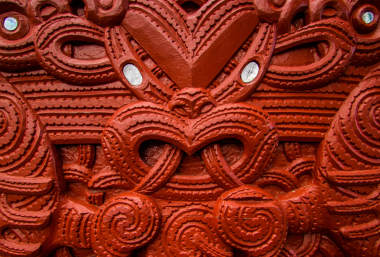Mātauranga Māori is a term that appears in government policy and is apparent in Treaty Claims and some legislation. It is generally used to describe traditional Māori knowledge, including traditions, values, concepts, philosophies, world views, and understandings derived from uniquely Māori cultural points of view.
Status of mātauranga Māori in IP law
Certain New Zealand intellectual property laws expressly recognise and respect aspects of Māori culture and traditional knowledge. Relevant legislation includes the Patents Act 2013, the Trade Marks Act 2002, and (more recently) the Plant Variety Rights Act 2022 (PVR Act).
By way of example, section 3(d) of the Patents Act says “the purposes of this Act are to… address Māori concerns relating to the granting of patents for inventions derived from indigenous plants and animals or from Māori traditional knowledge”. Additionally, each Act establishes a specialist Māori advisory committee.
The Patents Act and the PVR Act are the only IP Acts that expressly provide for recognition of Mātauranga Māori. The Trade Marks Act does not use this precise term.[1]
Trade Marks, Patents, and Plant Variety Rights
Under the Trade Marks Act, a trade mark application can be refused registration if it is considered offensive to Māori. This decision is made in consultation with the advisory committee, which is established by the Commissioner to advise as to whether the proposed use or registration of a trade mark that is, or appears to be, derivative of a Māori sign, including text and imagery, is, or is likely to be, offensive to Māori [2].
Under the Patents Act, the Māori advisory committee advises the Commissioner on request as to whether any invention claimed is derived from traditional Māori knowledge and if so, whether commercialisation of it is or is likely to be contrary to Māori values.
The function of the comparatively recent Māori Plant Varieties Committee goes beyond just advising the Commissioner about whether approval of a denomination would be offensive, and also includes issuing guidelines and providing advice to applicants.
Copyright law and mātauranga Māori
The Copyright Act 1994 does not expressly recognise Māori concerns, nor does it establish a committee dedicated to the protection of mātauranga Māori. The committees referred to above are each involved in the registration process. As copyright does not have a registration system, any such committee would need to operate in a fundamentally different way.
In 2011, the Waitangi Tribunal released the Wai 262 report in which it recommended wide-ranging law reform relating to Māori culture and identity.
As part of its response to Wai 262, the Ministry of Business, Innovation and Employment (MBIE) is in the process of reviewing the Copyright Act and has proposed that a separate stream be established, dedicated to considering the recommendations set out in the report. Part of this process is aimed at addressing how the Crown could work to develop a new legal framework for the protection of taonga works and mātauranga Māori.
In terms of actions taken to date, MBIE released a detailed Issues Paper titled “Review of the Copyright Act 1994” in November 2018, which remained open for consultation until 5 April 2019.
Our comments
Amending the Copyright Act could provide another tool for Māori to help establish protective boundaries around social, cultural and symbolic practices, and help prevent the continuing erosion of mātauranga Māori. It could supplement the existing protections in the Trade Marks Act, Patents Act, and PVR Act.
On the other hand, the current concept of copyright is arguably inconsistent with the longstanding Māori approach of communally held traditional knowledge passed down through generations.
For example, the Copyright Act only provides protection for works that are “original”. As traditional knowledge, mātauranga Māori incorporated into a work may not be sufficiently original to gain protection, unless the incorporated concepts are substantially modified by the author.
Further, the Copyright Act protects works for a defined time period (normally 50 years from the death of the author). The rigid timeframes in the Act would appear to be inconsistent with the perpetual, or generational, interests that Kaitiaki, and their successors, will have in certain mātauranga Māori and other taonga works.
The Wai 262 report emphasises that certain IP laws do not sufficiently protect taonga works and mātauranga Māori from inappropriate or offensive use by third parties. This concern appears to have been taken on board by the drafters of the recent PVR Act; one of the functions of the Māori PVR committee is to “advise the Commissioner whether the use or approval of a proposed denomination is likely to be offensive to Māori”.
The Copyright Act could, conceivably, be amended to include certain limitations that apply to works that incorporate mātauranga Māori in an offensive or inappropriate way, without disrupting the core concepts that underly the Act. The effectiveness of such limitations would, of course, depend on the drafting. Any proposed amendments would need to be very carefully considered.
MBIE’s ongoing review of the Copyright Act appears to have been overtaken by other priorities (its Review of the Copyright Act 1994 webpage was last updated in February 2021). It remains to be seen how the results of the upcoming election will affect MBIE’s ongoing review of Copyright laws.
AJ Park offers a full range of services for protecting and managing all kinds of intellectual property; from providing initial guidance on obtaining a trade mark, patent, design or PVR, to advising on IP strategy and commercialisation, to renewing your IP and resolving disputes. For help in protecting your intellectual property rights, reach out to one of our specialists.













